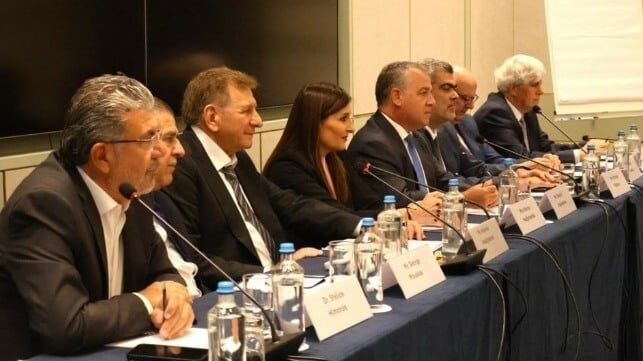Cyprus' Shipowners Call for Voting Down IMO's Net-Zero Framework

In the midst of high-stakes negotiations over the future of IMO's emissions rules, Cyprus' influential shipowners have publicly joined the side of the "nays" on the Net Zero Framework. In a statement, the Cyprus Union of Shipowners (CUS) called for the Cypriot government and other EU member states to vote against the proposal to allow more time for talks aimed at consensus.
"As currently drafted, the NZF poses a serious threat to the European shipping, economy, and energy security, and also represents a grave danger to small and medium-sized enterprises (SMEs)," the CUS argued. "In essence, it represents a multi-billion-euro tax that does not reduce emissions but instead shifts the cost to end-consumers."
The NZF is based on a fee structure on carbon emissions intended to incentivize green-fuel usage. But as the availability of green fuels on the market in the near term is extremely limited, many operators will likely pay the fee, feeding an IMO-administered fund at an estimated rate of about $10 billion per year (globally). These funds would be used to reward low-emissions ships, pay for green fuel infrastructure and R&D, and to offset the cost effects of the regulation on vulnerable states, notably shipping-dependent island nations.
The shipowners' association criticized the fee and fund plan, calling it a distraction. "Rather than reducing emissions, the framework diverts critical financial resources away from genuine technological and energy innovation, thereby slowing the transition to cleaner solutions," CUS asserted. "The result will be broad-based price increases, a higher cost of living and intensified inflation."
CUS warned of specific damage to small European shipowners, which could shrink the size of the EU-linked fleet through sales and early scrapping.
The shipowners' concerns are familiar territory, and can be found elsewhere. Given the absence of near-term alternatives, many operators will likely pay the NZF fees and continue to emit, according to a new review by researchers at Columbia University SIPA. Smaller operators and those on less competitive routes are the most likely to simply pay for compliance and then raise their rates to cover the cost, wrote researcher Evelyne Williams, a former deputy lead negotiator in the U.S. delegation at IMO. In addition, there are practical concerns about scaling up the operation of a global carbon fee system and building out IMO's structure to handle its administration, especially in the short timeframe before entry into force, she cautioned.
The CUS joins a growing list of opponents of the NZF, including the Trump administration, the government of Saudi Arabia, and an international coalition of prominent oil tanker owners. On the pro-NZF side, the International Chamber of Shipping, the European Shipowners Associations and the EU remain publicly supportive, along with a vocal coalition of small island developing states (which have concerns about rising seas).
IMO Secretary General Arsenio Dominguez has presented the agreement as imperfect, but better than the alternative - which he believes to be the proliferation of different regional and national carbon regulations (as found already in Europe). This future would have no carbon regulation role for IMO, and would leave shipping interests with less influence over the use of the carbon fees.
“The IMO Net-Zero Framework is not perfect. However, it provides a balanced basis for our further work," Dominguez said in opening remarks this week.
